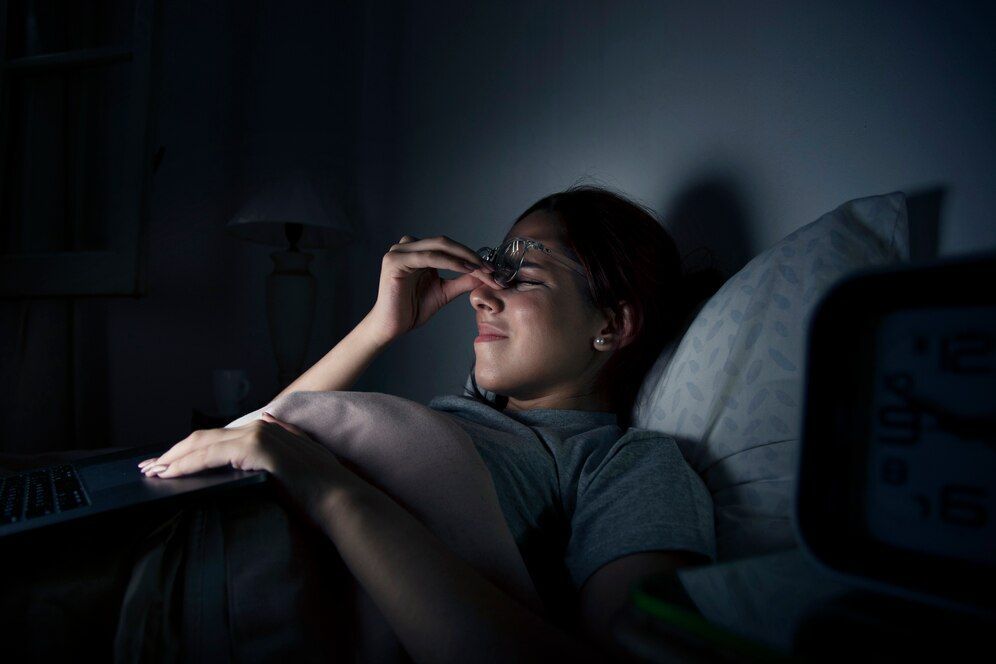Tackling Insomnia and Sleep Apnea with Pennsylvania Dental Sleep Medicine

Sleep is essential for maintaining overall health and well-being. However, for millions of people worldwide, getting a good night's sleep can be a challenge due to conditions like insomnia and sleep apnea.
Insomnia is characterized by difficulties falling asleep, staying asleep, or waking up too early and not being able to return to sleep. Meanwhile, sleep apnea is a sleep disorder that causes repeated episodes of partial or complete upper airway obstruction, leading to interrupted breathing during sleep. Both conditions can contribute to poor sleep quality, excessive daytime fatigue, and a host of other health complications if left untreated.
Many people may need to realize that these two sleep conditions are often interrelated. Individuals with sleep apnea are more likely to experience insomnia, as the interrupted breathing can cause awakening during the night, leading to difficulty falling back asleep. Conversely, insomnia has been known to worsen sleep apnea symptoms by affecting sleep patterns and increasing the risk of airway obstruction. Understanding the link between insomnia and sleep apnea is crucial for developing an integrated approach to manage both conditions effectively.
As doctors in dental sleep medicine, we recognize the importance of addressing both insomnia and sleep apnea to enhance patients' overall sleep quality and well-being. In this informative article, we will explore the connection between these two sleep disorders and discuss how dental sleep medicine can provide effective treatment options for patients in Central Pennsylvania.
The Vicious Cycle of Insomnia and Sleep Apnea
Insomnia and sleep apnea can create a vicious cycle, wherein one condition exacerbates the other, resulting in an ongoing struggle with sleep quality and overall health. Sleep apnea can cause fragmented sleep due to frequent arousals throughout the night, increasing the likelihood of insomnia-like symptoms. On the other hand, individuals with insomnia often experience disrupted sleep patterns, which can lead to increased instances of airway obstruction, further aggravating sleep apnea.
Breaking this cycle is crucial for improving sleep quality and reducing the risk of associated health complications, such as hypertension, heart disease, stroke, and type 2 diabetes. To achieve this, it's essential to adopt a comprehensive approach that focuses on treating both insomnia and sleep apnea, unlocking the door to better sleep and enhanced well-being.
Understanding the Role of Dental Sleep Medicine
Dental sleep medicine is a specialized field of dentistry focused on the treatment of sleep disorders, including sleep apnea and snoring, through oral appliance therapy and other non-invasive interventions.
By addressing sleep apnea-related breathing issues, dental sleep medicine professionals can effectively improve sleep quality and minimize the risk of insomnia symptoms. The role of dental sleep medicine in managing insomnia and sleep apnea is multifaceted, with many treatment options available to patients.
1. Oral Appliance Therapy for Sleep Apnea
Oral appliances, such as Mandibular Advancement Devices (MADs), are custom-fitted dental devices designed to reposition the lower jaw and maintain an open airway during sleep. By doing so, these devices help to mitigate the occurrence of sleep apnea episodes, reducing the risk of disrupted sleep that may contribute to insomnia. For many patients, oral appliance therapy can provide a comfortable and effective alternative to traditional CPAP (continuous positive airway pressure) therapy.
2. Sleep Hygiene and Cognitive Behavioral Therapy (CBT)
Sleep hygiene refers to habits and practices that promote a healthy sleep environment and better-quality sleep. Dental sleep medicine professionals can offer guidance on sleep hygiene improvements, such as maintaining a consistent sleep schedule, creating a comfortable and dark sleep space, and avoiding stimulants like caffeine or electronics before bedtime.
Cognitive Behavioral Therapy (CBT) is another non-pharmacological approach to managing insomnia symptoms. This therapy involves identifying and challenging negative thoughts or beliefs about sleep, promoting relaxation techniques, and establishing better sleep practices. Dental sleep medicine professionals can collaborate with mental health doctors in providing CBT support to patients dealing with both insomnia and sleep apnea.
3. Nutritional and Lifestyle Changes
Nutrition and lifestyle changes can significantly impact sleep quality. A balanced diet rich in nutrients and low in stimulants can lead to better sleep outcomes for individuals dealing with insomnia and sleep apnea. Dental sleep medicine professionals can recommend dietary modifications, such as reducing caffeine intake or consuming magnesium-rich foods like almonds or spinach, to improve sleep quality.
Lifestyle changes, particularly regular exercise and stress management techniques, can also positively influence both insomnia and sleep apnea symptoms. Exercise has been linked to improved sleep quality, while activities such as meditation, deep breathing exercises, and progressive muscle relaxation can help reduce stress and encourage restorative sleep.
4. Collaboration with Sleep Medicine Doctors
Dental sleep medicine professionals often collaborate with sleep medicine doctors to develop a comprehensive care plan tailored to each patient's needs. This collaboration enables patients to receive the most appropriate and effective treatment recommendations for both insomnia and sleep apnea.
Choosing a Dental Sleep Medicine Professional in Central Pennsylvania
Selecting the right dental sleep medicine professional is crucial for ensuring access to the most effective treatment options for insomnia and sleep apnea. As a patient, seeking a provider with the appropriate training, expertise, and certification in dental sleep medicine is essential. Central Pennsylvania is home to numerous qualified dental sleep medicine professionals who are committed to helping patients achieve better sleep, improved health, and an enhanced quality of life.
Unlocking Better Sleep Through Integrated Care
Insomnia and sleep apnea can wreak havoc on a person's sleep quality and overall well-being if not effectively addressed. By understanding the connection between these two conditions and embracing dental sleep medicine's potential to provide comprehensive care, patients can break the cycle and unlock the door to better sleep.
If you're struggling with insomnia or sleep apnea, don't wait any longer to seek help. Contact our
dental sleep medicine professionals in Central Pennsylvania to schedule a consultation and discover expertly-tailored treatment options designed to improve your sleep and enhance your well-being.


